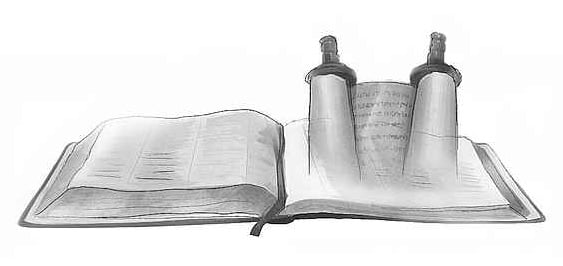Lesson 12, December 11-17

Sabbath Afternoon
Read for This Week’s Study: Matthew 4:1-11, Deuteronomy 8:3, Acts 10:34, Galatians 3:1-14, Acts 7:37, Hebrews 10:28-31.
Memory Text: “But he answered and said, It is written, Man shall not live by bread alone, but by every word that proceedeth out of the mouth of God.” Matthew 4:4
The New Testament is saturated with the Old. That is, the inspired writers of the New Testament quoted the inspired writers of the Old as a source of authority. Jesus Himself said, “It is written” (Matthew 4:4), meaning, “It is written in the Old Testament;” and He said that “the scriptures must be fulfilled” (Mark 14:49) — meaning the Scriptures of the Old Testament. And when Jesus met two disciples on the road to Emmaus, instead of doing a miracle to show them who He was, “beginning at Moses and all the prophets, he expounded unto them in all the scriptures the things concerning himself” (Luke 24:27).
Whether using direct Old Testament quotations, or allusions, or references to stories or prophecies, the New Testament writers constantly used the Old Testament to buttress, even justify, their claims.
And among the books often quoted or referred to was Deuteronomy (along with Psalms and Isaiah). Matthew, Mark, Luke-Acts, John, Romans, Galatians, 1 and 2 Corinthians, Hebrews, the pastoral epistles, and Revelation all go back to Deuteronomy.
This week we’ll look at a few of those instances and see what truth, present truth, we can draw from them.